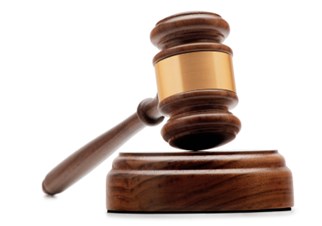The Key to Success: Why Effective Communication with Your Attorney Matters

When you're involved in legal matters, one of the most crucial elements in ensuring a smooth process is your ability to communicate effectively with your attorney. Whether it's a complex immigration case, a family matter, or a business dispute, proper communication plays a pivotal role in achieving a favorable outcome. Here’s why it’s essential to keep those channels open and transparent with your attorney.
1. Clarity and Understanding of the Case
From the moment you first sit down with your attorney, it’s important to be clear about your situation. If there are facts, documents, or important details you hold back or fail to mention, it could seriously impact your case. A legal professional can only build a strong case when they have all the information—both good and bad. Even if you think certain details are irrelevant, share them with your lawyer. What you might see as minor could have legal significance.
2. Setting Realistic Expectations
When you communicate openly with your lawyer, it allows them to set realistic expectations. Whether it's timelines, possible outcomes, or legal fees, clear communication ensures you know exactly what to expect. Misunderstandings or assumptions can lead to disappointment or unexpected surprises along the way. Make sure you ask questions and seek clarification when needed, ensuring you are on the same page at every stage of your legal journey.
3. Building Trust and a Solid Attorney-Client Relationship
Trust is the foundation of any successful attorney-client relationship. Effective communication fosters that trust. If you openly communicate your concerns, goals, and expectations, it allows your attorney to provide more targeted advice and solutions. Lawyers are there to guide you, but they can only do that if they understand what you’re seeking and what your priorities are. Trust your attorney, and maintain a steady flow of communication to strengthen the relationship.
4. Prevention of Legal Missteps
Sometimes, clients make decisions without consulting their attorney, which can result in serious legal consequences. Maintaining communication with your lawyer throughout the process ensures that you don’t accidentally take steps that could harm your case. Even small actions like responding to an email from the opposing party or signing a document without your attorney’s approval could be detrimental. Always check in before making any decisions that could affect your case.
5. Staying Updated on Legal Proceedings
The legal process can be long and complicated, and many clients feel left in the dark when they don’t hear from their attorney regularly. To avoid anxiety or confusion, establish a clear communication plan with your attorney. Make sure you know when to expect updates and what kind of communication method will be used—whether it’s via email, phone calls, or in-person meetings. This ensures you stay in the loop and are always aware of the status of your case.
6. Enhanced Strategy and Case Preparation
By maintaining regular communication, your attorney can adjust the strategy of your case as needed. New developments, evidence, or changes in your situation can impact how a case should proceed. If you stay in constant contact, your attorney can quickly pivot and develop new strategies, increasing your chances of success.
Final Thoughts
Open, honest, and frequent communication with your attorney is essential to navigating the legal landscape. Not only does it ensure your lawyer has all the necessary details, but it also builds trust, sets expectations, and helps you avoid costly mistakes. The right communication can make all the difference between a successful legal outcome and a missed opportunity.
“If you're looking for an attorney who values transparent communication and puts your interests first, explore Sulekha Legal Services to find the right fit for your legal needs. Our platform connects you with experienced attorneys across various fields, ensuring you get the best legal representation possible.”
Searching for Legal Services? Let’s make your search simple with professionals!
Take your Legal Services to the next level with Sulekha. Boost your online visibility, connect with more clients, and grow effortlessly!
Blogs Related to Legal Services

What to Do Immediately After an Accident to Protect Your Rights
What to Do Immediately After an Accident to Protect Your Rights A sudden car accident law can leave anyone shaken and overwhelmed. Yet, the moments right after a crash are crucial if you want to protect your legal and financial rights. Knowing what

How a Product Liability Lawyer Can Help You Secure Fair Compensation
How a Product Liability Lawyer Can Help You Secure Fair Compensation A product liability lawyer

Indian American Car Accident Lawyer: Navigating US Law for Your Case
Understanding the Role of an Indian American Car Accident Lawyer Being involved in a car accident in the United States can be stressful, especially for Indian immigrants who are still getting used to the American legal system. This is where an India

How to Choose the Best Product Liability Lawyer for Your Case?
How to Choose the Best Product Liability Lawyer for Your Case? When you’ve been injured or suffered financial loss because of a defective product, finding the right product liability lawyer can make all the difference. These cases often involve larg

Insurance Lawyers: Your Friendly Shield in the World of Claims
Why Insurance Lawyers Matter More Than Ever Let’s be real—insurance paperwork is about as fun as watching paint dry, right? But when life throws a curveball (hello, denied claims or confusing policy language!), an insurance lawyer can step in like

The Day Free Speech Stood Still: Charlie Kirk’s Assassination
Charlie Kirk’s Assassination and What Comes Next On September 10, 2025, Charlie Kirk, the conservative activist and co-founder of Turning Point USA, was fatally shot at an outdoor event hosted at Utah Valley University




